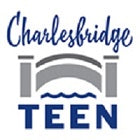Hip-Pocket Papa

Sandra Markle, author
Sandra Markle is the author of more than 200 nonfiction books on science topics for children and her books have won over 30 awards, including the NSTA and CBC's list of Outstanding Science Trade Books for Children, the International Reading Association's Young Adults Choice Award, the Society of School Librarians International Book Award for Language Arts K-6, the Parent's Guide to Children's Media Nonfiction Award, The Bank Street College of Education's Best Children's Books of the Year Award, and Nick Jr. magazine's Best Books of the Year Award. Markle has been named Georgia Author of the Year five times and was honored as one of 1999's Women of the Year by Women in Technology International for her contributions to science and technology.
Read more about Sandra.
Alan Marks, illustrator
Alan Marks began his career illustrating for magazines and newspapers in England. His first children's book Storm, written by Kevin Crossley Holland, won the Carnegie Medal. Alan now illustrates a wide variety of subjects, from nursery rhymes to war poetry.
Read more about Alan.
- An NSTA/CBC Outstanding Science Trade Books for Students K-12
- Oppenheim Toy Portfolio Gold Seal Book Award
- ALA Notable Children's Book
- A Junior Library Guild Selection
- CCBC Choices
- Charlotte Zolotow Award Honor
Kirkus Reviews
Building on the appealing notion of nurturing fathers, Markle and Marks present this tiny Australian frog in the context of its natural environment. Both male and female hip-pocket frogs guard their developing eggs, but after they've hatched, the male keeps his tadpoles safe in hip pockets until they have used up their yolks and developed lungs. The poetic text follows one male journeying to a new and wetter home, describing the creatures he eats and those that want to eat him along the way. Without explicitly using the phrase, she even offers an example of the food chain: A quoll catches the dusty antechinus hunting the frog. These and other Australian animals from the story are further descibed in an animal glossary at the end. The detailed, realistic watercolor-and-pencil illustrations, mostly double-page spreads, provide a frog's-eye view of the shadowy forest floor, pulling out to show predators overhead and, once, for a panorama of the temperate rainforest. This intriguing, informative introduction is a worthy successor to the team's Finding Home.
Booklist
Set in an Australian temperate rainforest, this picture book opens with a pair of tiny hip-pocket frogs guarding their eggs from predators while waiting for them to hatch. Finally, a dozen teeny tadpoles emerge and slowly climb into their father's hidden hip pockets. There they develop and grow for several weeks, while their father struggles to find food and avoid predatory animals such as the dusky antechinus (a marsupial) and the currawong (a bird). Shown on the book's dust jacket in actual size (less than an inch), the frog looks larger in the illustrations but remains a vulnerable, symphathetic figure to follow through the pages. Markle writes with clarity and precision, while Marks' evocative watercolor, ink, and pencil artwork brings the frogs' world to life. Well suited to classroom units on rain forests, food chains, or frogs, this lovely picture book offers close-up views of an intriguing little animal living in a particular ecosystem.
School Library Journal
In Australia's temperate rainforest, a miniature drama plays out among the leaves on the forest floor. Two hip-pocket frogs, less than an inch long, guard their eggs until tiny tadpoles emerge and wriggle up the male's hind legs into hidden pockets. Once the eggs hatch, the female's work is done, but for the next 30 days, the male must hunt for food and keep his skin wet while eluding predators. By the time the froglets emerge from his pockets, he has reached a creek bank where they can find the moisture they need for their continued survival. An animal glossary includes information about the currawong, antechinus, quoll, and other creatures the frog encounters. Marks's vibrant watercolors offer close-up views of the frog and his surroundings, revealing interconnections that cannot be seen easily by much larger humans. A photo of the hip-pocket frog appears in Markle's Slippery, Slimy Baby Frogs (Walker, 2006). Mark W. Moffett's Face to Face with Frogs (National Geographic) and Nic Bishop Frogs (Scholastic, both 2008) both use dramatic photos to provide a more wide-ranging introduction to these fascinating amphibians. While libraries will want to make sure those titles are in their collections before adding this one, Markle's new book offers a unique introduction to a specific species.
NSTA Recommends
Woven into the story are animals unique to the temperate rainforest ecosystem, including the dusky antechinus, a rat-sized marsupial, and the currawong, a bird with a 50-cm-long body. Told from the frog's point of view, this story makes it is easy to imagine the dangers this miniscule organism faces as well as its importance within the fabric of the ecosystem. Illustrator Alan Marks complements the tale masterfully with his watercolor, pen, and pencil drawings. The frog's perspective is pictured in the relationship between the leaf litter and the hip-pocket frog and the dangers faced when confronted by a boobook owl. The vibrant colors combined with the text are engaging. The author closes with a summary of the animals including their scientific names, characteristics, and preferred diet. Fast facts and sources for more information are sure to entice readers to find out more about the hip-pocket frog.
Paperback
ISBN: 978-1-57091-709-7
E-book PDF
ISBN: 978-1-60734-182-6
Ages: 4-8
Page count: 32
8 1/2 x 11





